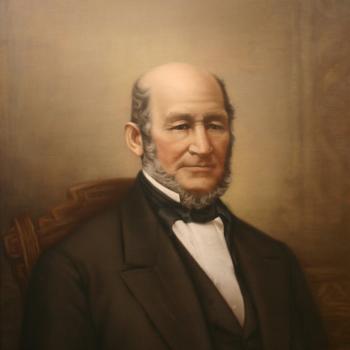I am about half way through reading Gordon Fee’s The First and Second Letter to the Thessalonians for the NICNT (Eerdmans). It is a hefty volume, at 350 pages. Fee, here, is replacing the older volume in the series by Leon Morris. Morris’ commentary was never really anyone’s go-to commentary for 1-2 Thessalonians, so it is understandable that Fee took this one on.
In some ways, Fee’s work is very impressive, as he is a very careful and attentive reader. He knows the Pauline letters so well (having done major commentaries on Philippians, 1 Corinthians, the Pastoral Epistles, and Galatians) that he is constantly pointing out where Paul is using language or syntax or ideas out of the ordinary for him.
One can always expect very precise and cogent textual discussions as well, and Fee does not shy away from challenging the status quo who simply follow Metzger’s recommendation. Similarly, Fee thinks like a translator and assesses the accuracy of various modern translations on the Thessalonian epistles. He favors the TNIV (as a committee member!), of course. This can be very helpful for professional translators (like those with Wycliffe) and also pastors who seek out the best idioms for explaining the exact meaning of a phrase or sentence in preaching or teaching.
Theologically, one can also guess that Fee gives close attention to matters pertaining to pneumatology and Christology. Indeed, the latter actually seems more prominent in this commentary -lots of discussions of how Paul uses the word “Lord” (kyrios) and whether he is referring to God the Father or Jesus – Fee often thinks the latter, and argues for this position even when most commentators presume the former.
Finally, it is also a pastorally sensitive and spiritually-enriching volume, perhaps more so than its series predecessors. After every section of commentating, Fee gives some – “so what does this mean for the church today” kind of advice. It is never cheesy or condemning, but illuminating and pensive.
Now, having made these very positive statements, I must say that as a commentary on 1 Thessalonians (I have not read the portions of 2nd Thess.), it is not really breaking much new ground in terms of insight into the major cruxes of the study of the letter. Neither in terms of background issues, textual problems, ethical issues (such as the ataktoi), or other areas does he venture a new position (at least not as of page 150). This seems to me to be a problem with new commentaries -though they are written by general experts (experts on Paul), ones like these are not by people who have spent their career on this one book (Fee has covered the field, for sure, but doesn’t have a mastery of the secondary literature, as he admits in the intro). Thus, what it adds in general exegetical insight, it lacks in incisive illumination when it comes to handling the perplexities of the letter in a new way.
I think Fee’s commentary will certainly be of more use than Morris’, as he does so many things well regarding textual criticism, rhetorical progression, translation details, christology/pneumatology, etc… Whether it will be the commentary that everyone reaches for first….I am still tempted to leave this honor to Wanamaker and Malherbe.















